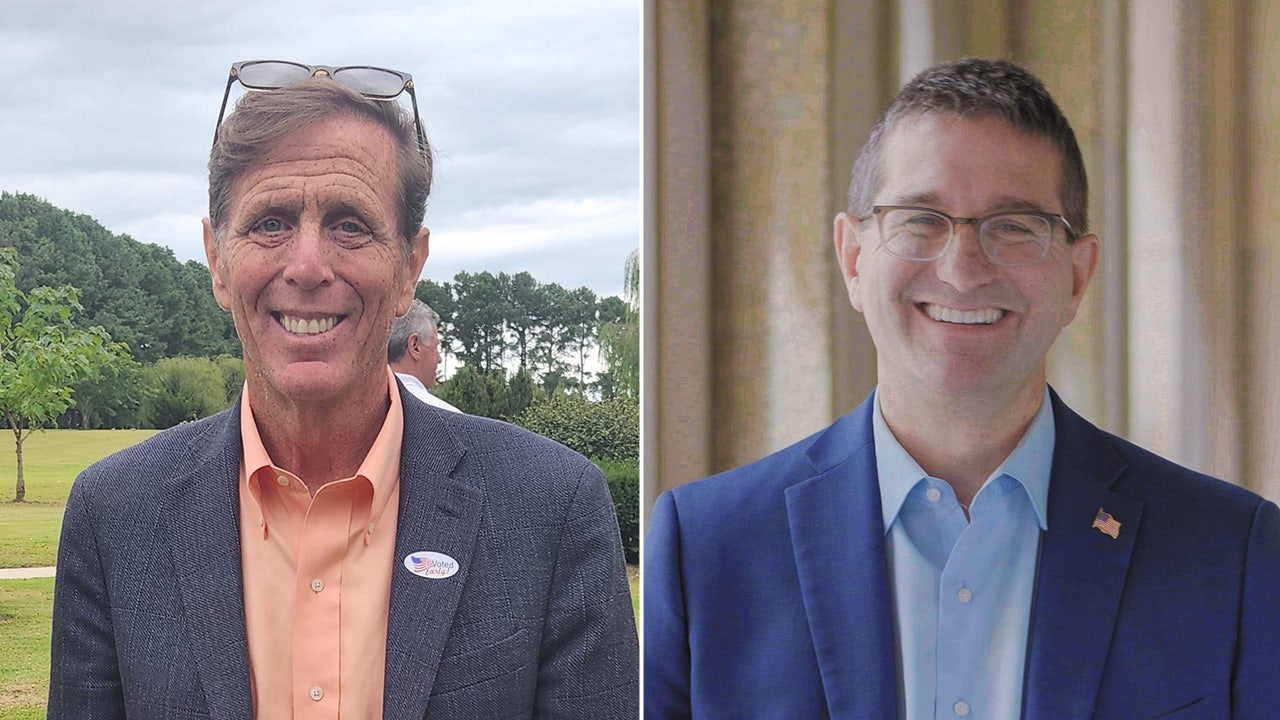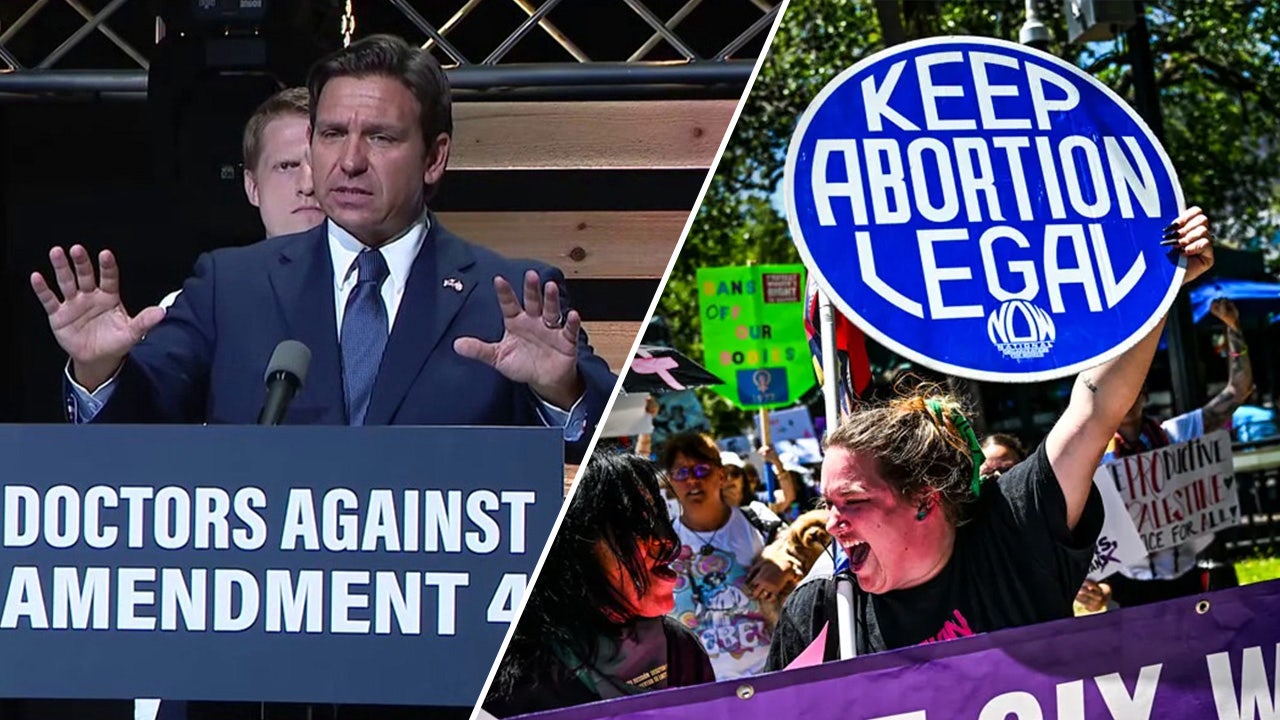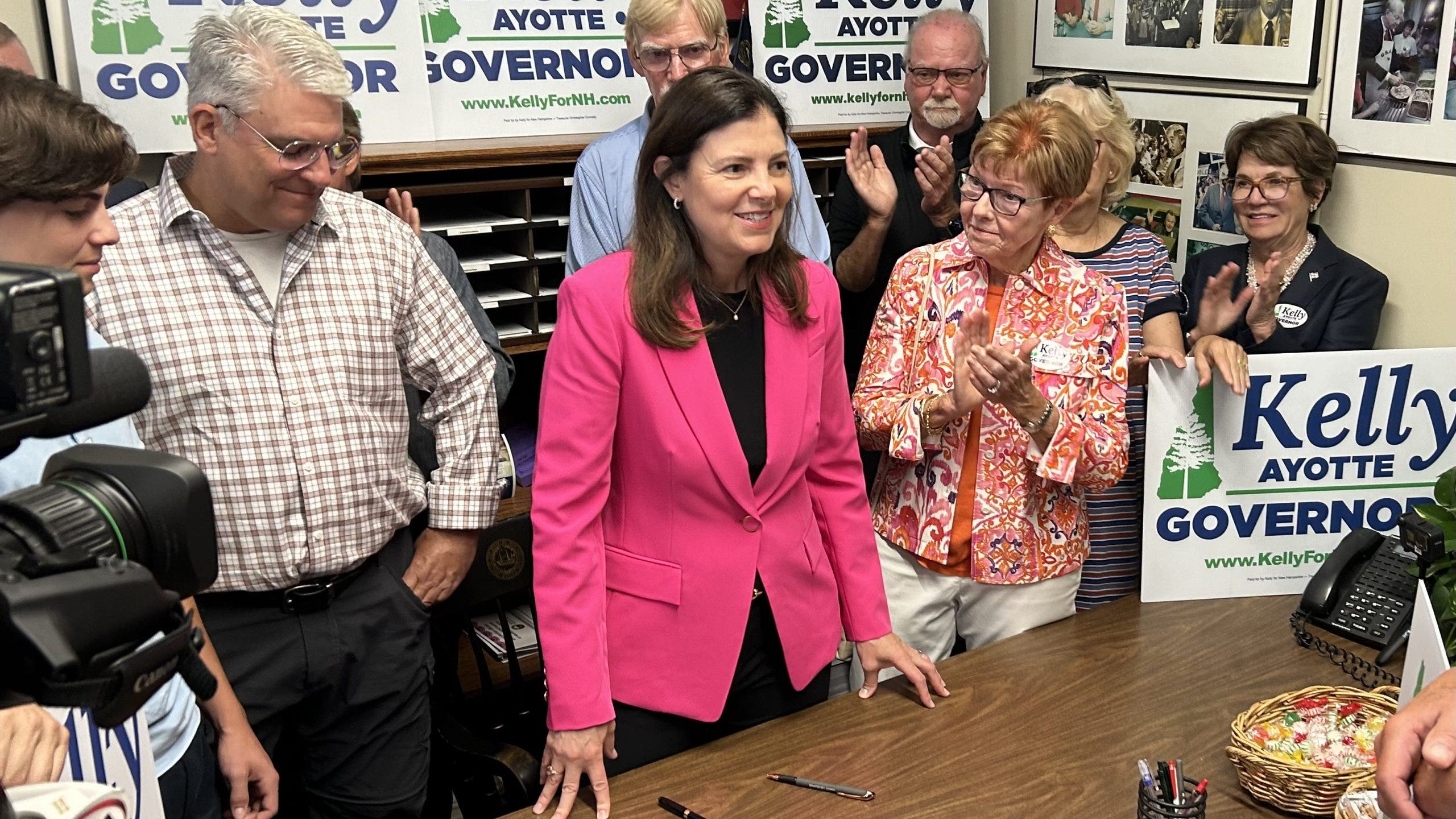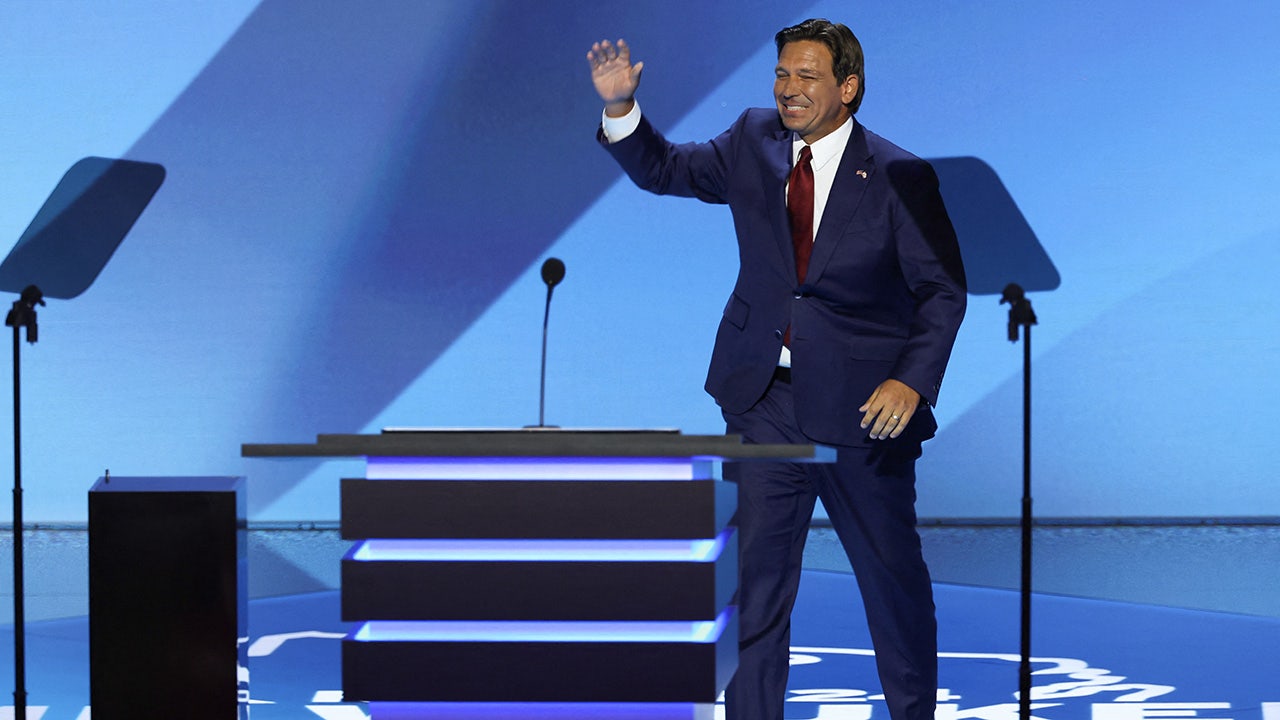After years of bad news about illegal immigrants swarming the border and flooding American cities, the mainstream media headlines couldn’t have been much better for Vice President Kamala Harris in the runup to Election Day.
“Illegal border crossings fell in July to lowest level in four years,” the Washington Post declared in August. “Migrant crossings at the US’ southern border drop again,” CNN reported in September. “Illegal migration at US border drops to lowest level since 2020,” read a USA Today headline in early October.
Monthly border crossings have “plunged,” reported the Post, adding that it is just “the latest indication that the Biden administration’s sweeping restrictions on asylum are reshaping migration trends.” An administration spokesman crowed that President Joe Biden and Harris have “taken effective action, and Republicans continue to do nothing.”
The news was so good that casual readers could easily assume that Biden and Harris had addressed the biggest problems and that the worst of the border crisis was in the past.
But a closer look at the state of the border heading into a decisive election reveals a decidedly less rosy picture than Biden, Harris, and that mainstream media are letting on.
While it is true that illegal border crossings have plummeted this year, according to U.S. Customs and Border Protection reports, CBP data similarly show that the bulk of border crossers have simply been funneled to official ports of entry where they’re increasingly being paroled into the country with a quasi-legal status and likely little vetting.
And while the media pin the drop in illegal border crossings on the asylum restrictions Biden approved in June — CBS News called it “arguably the most restrictive border policy by a Democratic president in recent history” — the data show the bulk of the decrease actually occurred in the months prior, after the Mexican government began cracking down on migrants heading to the U.S. and keeping them in the country’s southern provinces.
While Biden and Harris are happy for voters to believe they’ve calmed the border, there were still more than 2.9 million total border encounters in fiscal 2024, the second-highest on record behind only the 3.2 million encounters in fiscal 2023, CBP data show.
“All those people that would have been coming in between the ports of entry are now coming in through the ports of entry. The numbers just flip-flopped,” said National Border Patrol Council president Paul Perez, whose union endorsed immigration hard-liner Donald Trump for president.
With Biden and Harris in charge, federal agents have had nearly 11 million encounters with immigrants at the border, the CBP data show. Border Patrol agents have arrested more than 55,000 immigrants with criminal convictions or outstanding warrants, and have apprehended at least 385 aliens on the terrorist watchlist, according to the House Committee on Homeland Security.
After years of reports of migrants pouring across the border and then traveling in massive numbers to New York City, Chicago, Boston and Denver, polls show that immigration remains one of the top issues for voters heading into Election Day. Hence the sleight of hand by the Biden-Harris administration to project calm at the border after years of chaos.
In September, the Pew Research Center found that 82 percent of Trump supporters said immigration is very important to their vote this year, up 21 points from 2020. Even about four-in-ten Harris supporters say the issue is very important to them, the survey found.
While Trump has promised mass deportations of illegal immigrants if he’s elected, Harris has said her goal is to establish an immigration system that is “orderly and secure.”
“Solutions are at hand,” she said after visiting the border in September. She then added, apparently after realizing she’s been vice president for nearly four years, that “from day one, literally, we have been offering solutions.”
‘It’s Not How They Got In’
The total encounters tracked by CBP include both encounters that Border Patrol agents have with migrants who’ve crossed illegally between official ports of entry and encounters that customs officers have with people trying to enter through a legal process at the ports of entry, typically by making asylum claims.
Not every “encounter” represents a unique individual, as some migrants make multiple failed attempts to enter the country before they get in.
Total monthly encounters skyrocketed under the Biden-Harris administration, jumping from 95,276 in January 2021, when Joe Biden was sworn in as president, to a high of 370,883 in December 2023, which is technically in the 2024 fiscal year. Biden’s pro-immigrant campaign rhetoric and promises to institute more humane border policies helped to encourage thousands of migrants to make the dangerous trek to the U.S.
The CBP data do show a drastic drop in illegal border crossing encounters between official U.S. ports of entry since December — there were 55,993 in September, down from 251,178 in December (the most dramatic drop was actually between December and January, when illegal border crossing encounters were nearly halved — more about that below).
These are the numbers the Biden-Harris administration and mainstream news outlets are pointing at.

But the numbers that have received less attention involve the immigrants the Biden-Harris administration is paroling into the country at official ports of entry.
When Biden and Harris took office, customs officers were encountering fewer than 20,000 immigrants per month at ports of entry. Those numbers have increased dramatically during the Biden-Harris term, in part because of the CBP One app, launched in January 2023, which allows immigrants in Mexico to schedule appointments for asylum-claim interviews using a smartphone. Within months, CBP increased the number of available appointments to 1,450 per day, and over the summer it expanded the locations where appointments can be requested to include southern Mexico.
CBP reported more than 100,000 encounters at official ports of entry every month from May 2023 through July 2024. The number of encounters dropped slightly in August and then again in September, but remains far above pre-2023 levels, the CBP data show.

In addition to CBP One, the Biden-Harris administration has also launched a mass-parole program in January 2023 specifically for Cubans, Haitians, Nicaraguans, and Venezuelans, which has allowed hundreds of thousands of immigrants to fly into the country.
Those immigrants are typically not included in the CBP encounters data, said Todd Bensman, a national-security fellow with the Center for Immigration Studies.
“Those people are not landing at southern border ports of entry. They are flying into the interior,” Bensman told National Review.
Another Biden-Harris program, the Safe Mobility Office Initiative, has established storefront locations in Ecuador, Colombia, Costa Rica, and Guatemala, and has approved refugee status for tens of thousands of immigrants who are typically viewed as economic migrants.
Bensman suspects that when immigrants from those two programs are included, 2024 was likely a record year for border crossings, not runner-up to 2023.
“It’s not how they got in, it’s that they all got in,” he said. “Denver doesn’t care. Boston doesn’t care. Springfield [Ohio] doesn’t care that all those Haitians in their town came in under this quasi-legal thing. They’re just here.”
The New York Times on Sunday reported that Biden-Harris administration approved the mass-parole programs because the immigrants were “coming to the United States one way or the other.” It was better, they argued, to “let them come in an orderly process and with some limited ability to work legally in the United States while immigration authorities considered whether and how long they could stay,” according to the Times.
Under the Biden-Harris administration, about 2 million so-called “gotaways” — immigrants who avoided federal agents after crossing the border — also have entered the country.
Ira Mehlman, media director for the Federation for American Immigration Reform, or FAIR, said the efforts by the Biden-Harris administration appear to be more about giving the impression that the border is under control than actually controlling the border.
“They have simply decided they can parole anybody they want into the country,” he said. “It just removes the bad optics of people coming across the Rio Grande or coming across the desert.”
Brandon Judd, a retired Border Patrol agent and former president of the National Border Patrol Council, noted that in 2019, Jeh Johnson, the former Department of Homeland Security secretary during the Obama administration, said that more than 1,000 daily apprehensions of illegal border crossers should be considered a crisis. Even with the reduced number of illegal border crossings in recent months, Judd’s former Border Patrol colleagues are still encountering more than 1,000 illegal immigrants per day.
“So, when you hear the mainstream media constantly tout: the numbers have plummeted, the numbers have plummeted — okay, they’ve gone down from the already astronomical highs that they created,” he said. “They’re still higher than what Johnson said was a crisis.”
A Migrant Time Bomb in Mexico?
In early June, after claiming for much of his presidency that there was little he could do to stem the tide of illegal immigrants without help from Congress, Biden announced an executive order placing new restrictions on immigrants seeking asylum in the U.S.
In part, the executive order only allowed for immigrants to make asylum claims at official ports of entry, not between the ports.
“If an individual chooses not to use our legal pathways, if they choose to come without permission and against the law, they’ll be restricted from receiving asylum and staying in the United States,” said Biden, still eyeing reelection at the time.
Despite Biden’s order containing plenty of loopholes, mainstream media outlets have largely attributed the drop in illegal border crossings to those restrictions.
What has received less attention are actions by the Mexican government, seemingly working on Biden and Harris’s behalf, to curb the flow of migrants to the U.S. border.
Bensman has been leading the effort to shine a light on the Mexican government’s role. He’s noted that in late December, Secretary of State Antony Blinken and DHS Secretary Alejandro Mayorkas traveled to Mexico City to “discuss unprecedented irregular migration” and “border security challenges” with government officials there. Details about the meetings are scarce, but soon after the number of illegal border-crossing encounters dropped dramatically from 251,178 in December to 125,440 in January, data show.
Reporting by Bensman and others found that Mexican troops bulldozed migrant camps near the U.S. border, rounded up intending border-crossers, transported them by bus and plane to southern Mexican states along the Guatemala border, and kept them there.
Mexico’s measures were the result of “pressure” from U.S. leaders, and “aim to tire migrants so they give up before reaching the U.S. territory,” Reuters reported last month.
Bensman recently traveled to Tapachula, a city in the southern Mexican state of Chiapas, reporting that it “holds a migrant time bomb ready to go off just after the U.S. presidential election.”
“It was visibly crowded and everybody there was complaining about how crowded it was, and how there was no work, there was no way they could sustain themselves during the wait,” he told National Review. “They’re all trying to get CBP One.”
Mehlman said Biden and Harris essentially outsourced border security to the Mexicans.
Biden, he said, “didn’t want to alienate his party’s left-wing base by actually enforcing the border, so he kind of farmed it out, asking Mexico to do it for us.”
Speaking to 60 Minutes in March, Mexico’s then-president Andrés Manuel López Obrador acknowledged that his country has the power to slow down migration to the U.S. In exchange for controlling migration, he called for the U.S. to commit to providing $20 billion per year to poor countries in Latin America and the Caribbean to address the root causes of illegal immigration to the U.S. He also called for the U.S. government to lift sanctions on Venezuela, end its embargo on Cuba, and legalize millions of Mexicans living in the U.S.
And if the U.S. says no? “The flow of migrants . . . will continue,” he said.
Mexico’s new president, Claudia Sheinbaum, has mostly stayed quiet on the immigration issue since taking office, but has generally been a pro-immigrant advocate, Bensman said.
Mehlman said the drop in immigrants crossing the border illegally appears to be largely dependent on the good will of Mexico.
“Nobody seems to know what the quid-pro-quo is in this whole arrangement, but it could end at any time,” he said, noting that a migrant caravan of about 1,000 people left Tapachula in mid-October heading for Mexico City and then the U.S.
‘They Do Not Want Donald Trump’
Judd, the former Border Patrol union head, believes the Mexican government — as well as the Mexican cartels — understands the ebbs and flows of U.S. politics, and are stemming the flow of immigrants to prop up first Biden’s and now Harris’s electoral prospects.
“They do not want Donald Trump in office,” he said. “They know that it’s going to be bad for them.”
The prospect of another Trump presidency is clearly understood by the migrants being held in southern Mexico, Bensman said. “One thing I picked up loud and clear down there is that is on everyone’s minds, that Trump has a 50–50 shot of winning, and if he does, he will close that border for real and we won’t get in,” he said.
Bensman, Mehlman, and Judd all agreed that a Trump win on Tuesday could lead to a massive run on the border before he takes office again in January.
But even if Harris wins, a surge in border crossings could be in the works, Bensman said.
“I think that Mexico will have considered it having met its obligation to hold them back,” he said. “The Mexicans are in the driver’s seat, they’re in the pilot’s seat on all of this, which is a big problem. And I think they’re just going to say, ‘Hey, we did our job, we got you elected. This is killing us down here. We’re letting them go.’”
A Harris win would also more likely lead to elevated immigration levels for at least another four years, Bensman suspects.
“I hope I’m wrong,” he said. “I hope I’m totally wrong, and I’ll be very happy to admit that I was wrong if Harris wins and decides, ‘I don’t need this political headache.’”
Reprinted with permission from The National Review by Ryan Mills.
The opinions expressed by columnists are their own and do not necessarily represent the views of AMAC or AMAC Action.
Read the full article here






